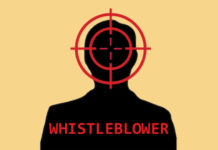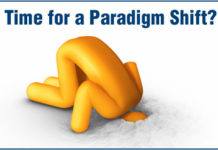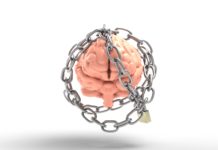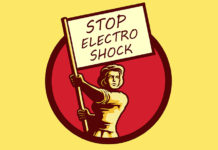Exploring the Role of Community Engagement in School Psychology
New research emphasizes the impact of school connectedness and community engagement interventions on students' mental health.
What Would Real Informed Consent on Psychiatric Drugs Look Like?
Reforming the process of real informed consent can be brought to the horizon sooner rather than later if we have a solid idea of what the provision of truthful, unbiased research-based information about psychiatric medications should look like. Our upcoming series of webinars for 2019 will focus on just that.
Some Herbal Supplements May Contain Dangerous Pharmaceuticals
Between 2007 and 2016, the FDA identified 776 herbal supplements containing active, unapproved pharmaceutical chemicals.
Study Finds Deteriorating Mental Health Among Poor White Americans
Researchers find evidence of low socio-economic status White Americans’ rising distress and declining well-being since the mid-1990s.
The Agonizing Nightmare of Drug-Induced Akathisia
Take every horrific feeling you’ve ever had in your life, all at once. Now, times them by 200, right in your gut. That is how akathisia pain feels. When I tell doctors I have drug-induced akathisia, and that it's incredibly painful, they do not believe me. They say my pain is a mental health issue, and they have all methodically undermined my credibility in my permanent record.
Trauma Outside the Box: How the ‘Trauma-Informed’ Trend Falls Short
Becoming "trauma-informed" is often just a way to advance one's career and feel good about oneself while pretty much doing nothing different. Here's a glimpse into the ways in which mainstream services and trauma specialists are perpetuating harm while patting themselves on the back for being progressive and aware.
Litigation Update: ECT Device Manufacturer Issues “Permanent Brain Damage” Warning
After spending the entire litigation vehemently denying that brain injury was even a possible result of ECT, Somatics, LLC has now issued a warning of "permanent brain damage" in its new risk disclosures. We think this makes the case of anyone who underwent ECT within the statute of limitations MUCH stronger.
Study Explores Connections Between Diet and ‘Serious Mental Illnesses’
Study finds that individuals diagnosed with schizophrenia, bipolar disorder, and depression have diets that are more inflammatory and higher in calories.
Outcomes of Childhood Bullying on Young Adults’ Wellbeing
A qualitative study explores young adults’ childhood bullying experiences.
Heroes of Science: Survival of a Whistleblower
I am just the messenger, the symbol that healthcare is in many ways absurd and harmful because the drug industry is too powerful. The Cochrane Collaboration is in deep crisis because it is too close to industry, practices scientific censorship and has a business model that focuses on “brand” and “our product” rather than getting the science right.
Learning From Each Other As Psychiatric Survivors
I'm drained by talking to people who might be first discovering basic truths about the mental health system that I've been aware of for over 15 years. But my excitement comes alive when I consult with people recently off of psychiatric meds who are interested in doing work similar to me, mentoring others about coming off of psych drugs.
Why Precision Psychiatry is Not a Paradigm Shift
A letter just published in JAMA Psychiatry suggests that “precision psychiatry” is not the paradigm shift it’s purported to be by the psychiatric establishment.
Does Psychotherapy Reproduce or Disrupt Neoliberal Capitalism?
Researchers explore neoliberal influences on interactions in psychotherapy and question whether the radical potential of psychotherapy can counter prevailing social systems.
Escaping from AOT: The Importance of the Incident with the Candle
At my AOT hearing, in response to a question about whether I had had any problems with substance use, my counselor said that there had been “an incident with a candle.” There has never been an incident with a candle, but now it is enshrined in my permanent record, so vague and so general that it could mean anything.
Anatomy of a Psychiatrist
An interview with Dr. Sandy Steingard, Medical Director at Howard Center and Clinical Associate Professor of Psychiatry at the College of Medicine of the University of Vermont. Dr. Steingard serves as Board Chair of the Foundation for Excellence in Mental Health Care and is editor of the book 'Critical Psychiatry, Controversies and Clinical Implications' due in 2019.
Mortification of the Self: The Impact of Stigma on Identity
This is how the vicious cycle continues: the more one internalizes stigma, the more she will distance herself from her social surroundings; the more she distances herself, the more she will experience proliferation of symptoms; and the more symptoms are present, the more others will stigmatize and "force" the person into further isolation.
The Psychological Effects of the Zero-Tolerance Immigration Policy
Journal releases a compilation of articles detailing how zero-tolerance policy may impact mental health.
Hearing Voices: Where We Locate Them Shapes Our Experience
My experience began when I heard two people talking about me when I was home alone. I needed a reasonable explanation, and concluded that it had to be my upstairs neighbors. Then I began to hear the voices outside of my apartment — this new presentation meant that my explanation no longer made sense.
New Study Explores Approaches to Discontinuing Antidepressants
Psychiatrist and psychologist outline pharmacological and psychotherapeutic strategies for discontinuing antidepressants.
Linking Screen Time, Smartphones, and Stress Among Young Adults
New review ties increased screen time to increasing anxiety and depression among young adults throughout the United States.
Bad-Science Warning: The “Minnesota Study of Twins Reared Apart” (MISTRA)
The huge impact of the MISTRA, in addition to the harmful and regressive social and political policy implications that flow from it, necessitates a detailed analysis of the “science” behind the study’s major claims and conclusions. Here I offer a new critique of this famous and influential “separated twin study.”
Multiple Researchers Examining the Same Data Find Very Different Results
A new study demonstrates how the choice of statistical techniques when examining data plays a large role in scientific outcomes.
Sociologists Interrogate Neurobiological Explanations in Criminology
A discourse analysis conducted by sociologists finds problematic assumptions and practices in the field of neurocriminology.
Who Are They to Say I Wasn’t Buddha?
I still believe I was Anne Frank in my past life, and nothing is wrong with such a belief. I am no longer Buddha, though, because they crashed my spiritual awakening when it was happening. But I go on. I deserve to be happy. I have a family to think of, I want to contribute to society on some level. I want to live. They won’t crash me. Or so I hope.
The “Time to Strike” is Now: A Call for Anti-ECT Activism
This is a call for action against the horror euphemistically known as “electroconvulsive therapy.” At a time when society is finally making advances against ECT, a courageous 80-year-old shock survivor, Connie Neil, has decided to go on a hunger strike to try to stop the horror that was visited on her from continuing to be visited on others.

































